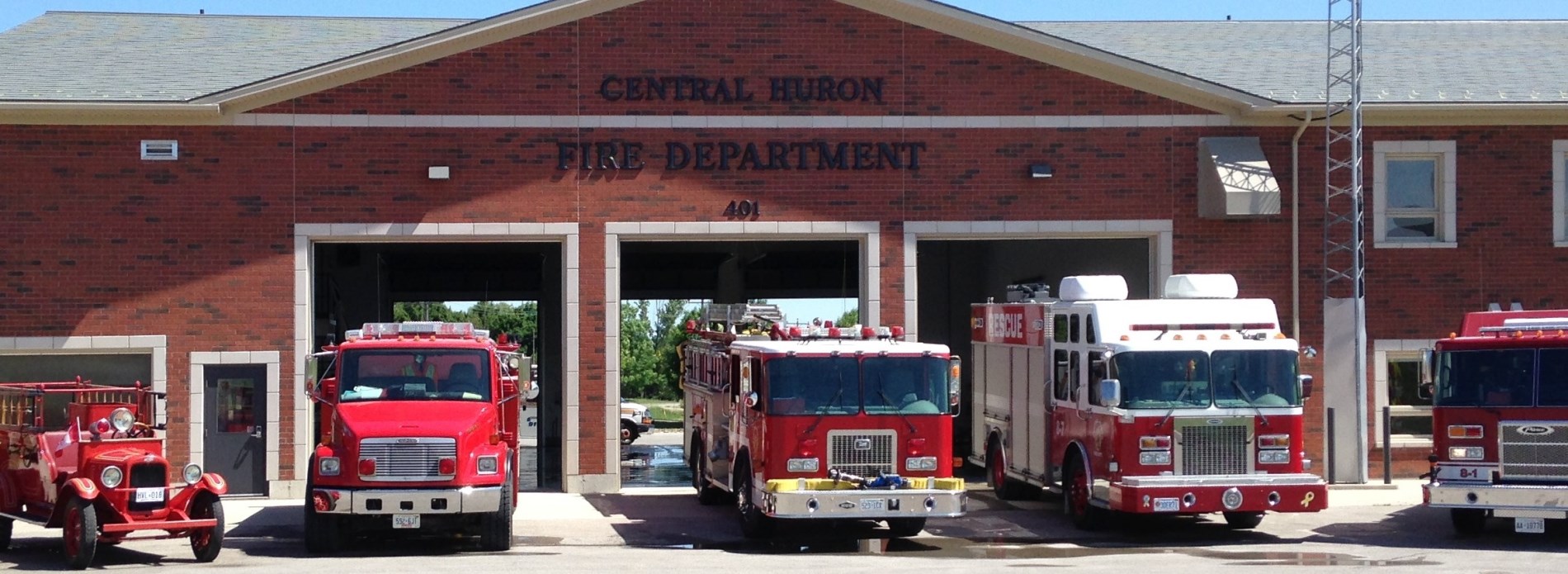Fire Safety
The Central Huron Fire Department is dedicated to educating the public on fire safety. Working smoke and carbon monoxide alarms are necessary to keep you and your family safe. Cooking fires are the primary cause of all home fires and Smoking related fires are the number one cause of fatal home fires.
How do I prevent a cooking fire?
- Always stay in the kitchen while cooking. If you must leave, turn off the stove.
- Keep anything that burns like dishcloths and paper towels a safe distance away from the stove.
- Loose fitting clothes can come into contact with stove burners and catch fire. Wear tight sleeves or roll them up when cooking.
How do I prevent a smoking fire?
- Encourage smokers to smoke outside.
- Do not extinguish cigarettes in plant pots, which make contain a mixture of peat moss, shredded wood, and bark that can easily light.
- Never smoke in bed.
- Use large, deep ashtrays that cannot be knocked over.
- Empty ashes into a metal container, not in the garbage can, and put it outside.
- If people have been smoking in your home, check behind chair and sofa cushions for cigarette butts before going to bed.
Carbon Monoxide
Carbon monoxide is known as the silent killer because it is an invisible, tasteless and odourless gas that can be deadly. Carbon monoxide is produced when fuels such as propane, gasoline, natural gas, heating oil or wood do not burn completely in fuel-burning appliances and devices such as furnaces, fireplaces, hot water heaters, stoves, barbeques, portable heaters and generators or vehicles. Over 65% of CO-related injuries and deaths in Ontario occur in the home.
Symptoms of carbon monoxide poisoning include flu-like symptoms such as headaches, nausea and dizziness, as well as confusion, drowsiness, loss of consciousness and death.
If your CO alarm sounds, and you or other occupants suffer from symptoms of CO poisoning, get everyone out of the home immediately. Then call 9-1-1 or your local emergency services number from outside the building.






